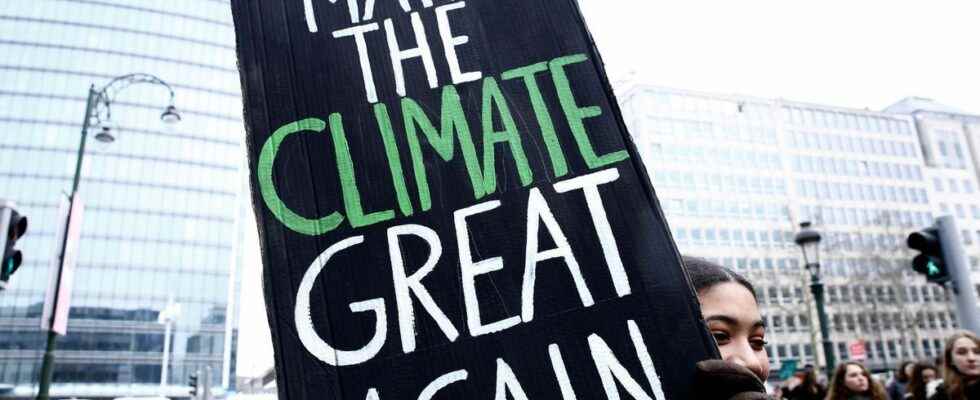Published on
Updated
Reading 2 mins.
Faced with abnormally high temperatures in France, the term eco-anxiety is on the lips of those who fear for the future climate. If the term has recently appeared in our vocabulary, the notion, on the other hand, is not new. In full COP27 which takes place in Egypt in Sharm el-Sheikh until November 18, we tell you more about the term eco-anxiety.
Media, activists and NGOs are increasingly talking about eco-anxiety, in reference to anxieties about the repercussions of human activities on the planet. The word is recent, of course. But are we really the first generations to worry about the future of the planet? “Compared to previous decades, the novelty is that we put a word on evils“, explains Alice Desbiolles, public health doctor.
In 1872, in her book “Impressions et souvenirs”, George Sand already warned of the harmful effects of human activity on the environment. “If we are not careful, the tree will disappear and the end of the planet will come by drying out without any necessary cataclysm, through the fault of man. Do not laugh about it, those who have studied the question do not think about it not without fear”. At the time, the author raised heaven and earth to protect the forest of Fontainebleau, threatened by a forestry project.
A concept theorized in the 20th century
Over time, the link between mental health and nature is making its way into psychological research. Before warning about the state of the world, it is the therapeutic virtues of nature that interest the American researcher Robert Greenway. This “boy of nature” works on the concept of “ecospychologie” during his studies at the University of Washington. Throughout his research, the latter notes the therapeutic virtues of nature on the participants.
Based on his work, the American historian Theodore Roszak deepens this notion and gives it the name of eco-anxiety. He defines it as “a fear in anticipation of a catastrophic environmental event”. First addressed in the 1970s, this notion is developed in his book “Ecopsychology: Restoring the Earth, Healing the Mind” published in 1995. This term remains “niche” for several decades, emerging over the course of climatic catastrophes.
The motherhood of the word eco-anxiety, in the French-speaking lexical field, is attributed to the doctor-researcher in public health Véronique Lapaige. In 1996, the Belgian-Canadian accumulated three professor caps, she explains to National Geographic, one in mental health, one in public health and one in environmental health. She then noticed in a panel of patients an “identity malaise” vis-à-vis global warming. The effects of eco-anxiety are plural and personal. This fear of climate change can create negative emotions, nocturnal awakenings and harm the person. In 2007, American psychologists note a strong influx of consultations of patients frightened by the climate crisis.
2019, a pivotal year
The year 2019 is a marker for the visibility of the term “eco-anxiety”. Heat records are piling up and the effects of climate change are increasingly visible in France. The term is gaining a place in the media from the summer of 2019, according to figures from Europresse relayed by the Jean Jaurès foundation. That year, 108 articles mentioned the subject, against only one the previous year. As for Internet searches on the subject, the “peaks” of searches coincide with climatic events such as heat waves, fires or floods.
So, eco-anxiety, good or bad thing? For some, eco-anxiety is synonymous with anxiety, sleepless nights and prevents any action for the climate. However, for Alice Desbiolles, interviewed by ETX Studio, “it’s a saving feeling, because I’m talking about an adaptive eco-anxiety. It acts as a trigger for setting individuals in motion“.
Unable to retrieve video.
